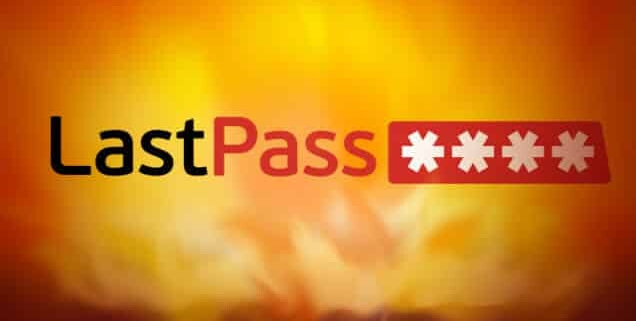LastPass Hacked, Change Your Master Password Now
LastPass – my favorite password manager – has been hacked. This is the bad news. It’s time to change your master password. If you have LastPass, do this right now before you finish reading this post. The good news is that passwords you have saved for other sites should be safe.
LastPass announced on their company blog that they detected a server intrusion. While encrypted user data (your stored passwords for other sites) was not stolen, the hackers did take LastPass account email addresses, password reminders, server per user salts, and authentication hashes. The latter is what’s used to tell LastPass that you have permission to access your account.
According to LastPass, the authentication hashes should be sufficiently encrypted to prevent anyone from using them to access your account. However, the company is still prompting all users to update their master password that they use to log in to their LastPass account. If you use LastPass, you should do this immediately. If you share that master password with any other services, you should change it there, too. Finally, if you haven’t enabled two-factor authentication you should do that immediately here.
LastPass Security Notice – Updated June 16, 2105:
Was my master password exposed?
No, LastPass never has access to your master password. We use encryption and hashing algorithms of the highest standard to protect user data. We hash both the username and master password on the user’s computer with 5,000 rounds of PBKDF2-SHA256, a password strengthening algorithm. That creates a key, on which we perform another round of hashing, to generate the master password authentication hash. That is sent to the LastPass server so that we can perform an authentication check as the user is logging in. We then take that value, and use a salt (a random string per user) and do another 100,000 rounds of hashing, and compare that to what is in our database. In layman’s terms: Cracking our algorithms is extremely difficult, even for the strongest of computers.
Am I at risk if I have a weak master password?
An attacker could try to guess your master password, then use your per-user-salt and authentication hash to determine if their guess was correct. Typically, an attacker would try a list of commonly-used passwords or dictionary words (such as 12345678, password1, mustang, robert42, iloveyou). They would have to do this for you specifically, since your “per-user” salt is unique to your account . Because your password is hashed thousands of times locally, and this hashed value is again hashed 100,000 times before being stored server-side, guesses will be very slow. If your master password is weak or if your password reminder makes it easy-to-guess, then the attacker could significantly reduce the number of attempts needed to guess it correctly. Then the attacker would have your master password, but not your data, since your data vault was not exposed. If the attacker attempted to get access to your data by using these credentials to log into your LastPass account, they’d be stopped by a notification asking them to first verify their email address. We require this security measure for any attempt to access your vault from a new device/location, unless you have multifactor authentication enabled.
Were passwords or other data stored in my vault exposed?
No, your data is safe. Encrypted user vaults were not compromised, so no data stored in your vault is at risk (including form fill profiles, secure notes, site usernames and passwords). However if you used your master password for any other website, we do advise changing it – on LastPass as well as on the other websites. Note that you should never reuse passwords – especially your LastPass master password!
What should I do now?
Our security and processes worked as designed, and customer data was, and is, protected. Because we are requiring verification for any new IP address or device, your account is secure. You will be prompted to update your master password when you login. Not all users will see the prompt immediately, but your account is safe and you can update when prompted. For added security going forward, we recommend enabling multifactor authentication. Also, be wary of phishing emails asking you to disclose your master password, payment information, or any other personal information. Never, ever disclose your master password or any confidential information, even to someone claiming to work for LastPass.
Why did I hear about this in the media first?
Emails have been sent to all users regarding the security incident. Notifying millions of users via email takes time. Therefore, we also announced the security alert to our blog and our social accounts in real-time, and the media quickly picked up the story.
I reset my master password, but now I can’t get in!
If you forgot or mis-typed your new master password, please revert your change: https://lastpass.com/revert.php and login again with the previous master password. Then you can try another change (and be careful of typos!).
I don’t remember my old master password.
Please try password recovery: https://lastpass.com/recover.php on a browser where you’ve used LastPass before. For more information about account recovery, see: https://helpdesk.lastpass.com/account-recovery/






Leave a Reply
Want to join the discussion?Feel free to contribute!